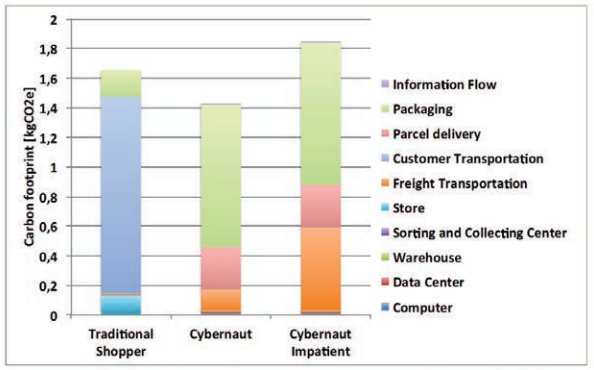Amazon has been instrumental in a new - global - international ‘day’: Black Friday, which has come to dominate the retail year, with retailers around the world offering unique and/or discounted items in a bid to convert more sales. The months of October, November and December bring a string of big holidays including Diwali, Thanksgiving and Christmas - and for many, this means not just family, food and festivities, but SHOPPING.
National Geographic reports that the U.S. Post Office estimates around 15 billion pieces of mail and 900 million packages are delivered between Thanksgiving and the New Year. Meanwhile in the UK, consumer spending in Q3 is reportedly shifting from December into November, due to Black Friday. The October-December period in 2018 saw 585 million domestic deliveries and 87 million inbound international deliveries into the UK - significantly higher than any other time of year.
So our busiest period of online shopping is condensed into a tight space of time, which means more vans on the road to cope with peak volume. Meanwhile, we are becoming more accustomed to faster delivery capabilities, largely driven by Amazon’s exceptional logistics network. So this means we are having items delivery quicker and quicker - practically on demand. Again: more vans on the road to meet demand.
We’ve had enough
In 2019, the tide arguably begin turning against Amazon and Black Friday. I say ‘arguably’ because although there were high-profile protests and social media movements encouraging people to buy nothing on Black Friday, the UK’s Black Friday sales actually broke records. But in France, protesters have blocked Amazon warehouses and deliveries in protest against the environmental impact of over-consumption, consumerism and vast increases in the number of deliveries.
Amazon has benefited more than most (except the Chinese behemoth Alibaba, which secured £38bn of sales in one day in 2019) so it is right that it also bears the brunt of the environmental backlash. Jeff Bezos may have pledged to make the company carbon neutral by 2040, via offsetting initiatives and electric vehicles, but is this just a clever PR move that papers over the cracks? Or will it make a difference? The fact is, we don’t know. Every positive initiative is to be applauded, but the biggest impact we can make ourselves is the one that we can control.
What can I do to reduce my carbon footprint when shopping?
If you’re an online shopper, don’t choose next day delivery - is it really necessary to receive it in one day instead of three, or five? If you can afford to take your time, choose less urgent options that mean packages can be shipped in bulk without laying on extra vehicles.
A study by MIT found that online shopping is more environmentally friendly than in-store, but only if shoppers are not impatient and select faster delivery options than they need:

Similarly, if you’re ordering multiple items, order them at the same time and look to have them delivered together instead of being shipped out separately.
Also ask if you’ve considered a domestic company or if your purchases are being shipped from the other side of the world? Is it worth spending a little bit more for something made and sent in your own country?
Or - and arguably the biggest question to ask yourself - do you even need to buy the item? Whether it’s for you, or a gift for a loved one - can you do without, or is there an alternative they’d love that also carries a lower carbon footprint?
Look for alternatives and make your decision. Don’t let the pursuit of perfection and desire an instant cure prevent you from making changes today that - collectively - can make a big difference now.